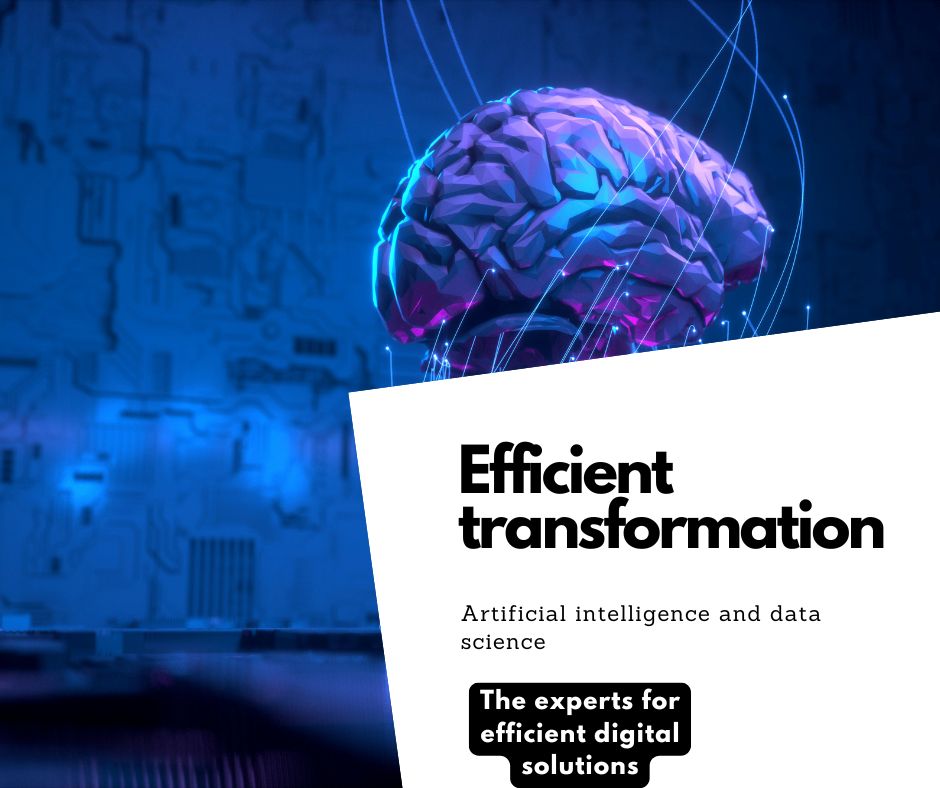Increasing efficiency in B2B: How AI is transforming business processes

Artificial intelligence (AI) is a powerful tool that is changing the way companies work. It has already proven its value in consumer-facing applications, but it is also becoming increasingly important in B2B environments. In this article, we explore how AI can improve B2B processes and provide tips for beginners who want to use AI to achieve better results in their B2B businesses.
Key Takeaways
- Automation and increased efficiency in B2B processes: AI can automate routine tasks, improve customer service, and enable informed decisions through predictive analytics. This helps companies to save time, reduce errors and free up employees for higher-value tasks.
- Improved personalization and fraud detection: AI can deliver personalized recommendations in marketing, identify cross-selling and upselling opportunities and detect fraud in real time. This increases customer satisfaction and protects the company from financial and reputational damage.
- Supply chain optimization and strategic deployment: AI can identify bottlenecks in the supply chain, predict demand and optimize logistics processes. Companies planning the strategic use of AI should start with specific use cases and work closely with IT and data science teams to identify the best solutions and ensure long-term success.
Possible areas of application
There are a number of good application areas in the B2B environment in which the use of AI solutions is often worthwhile. Here is a selection of areas in which we have already been able to support our customers.
Routine tasks
One of the key benefits of AI is the ability to automate routine tasks. In a B2B environment, this could include tasks such as data entry, invoicing and responding to customer queries. By automating these tasks, companies can reduce the risk of errors, save time and free up employees for higher value tasks that require human input.
Forward-looking analysis
Another area in which AI can be particularly valuable in B2B processes is predictive analysis. By analyzing large amounts of data, AI can identify patterns and make predictions that are not immediately apparent to humans. This can help companies make more informed decisions and improve their processes. For example, AI can predict demand for products, identify potential disruptions in the supply chain or even anticipate customer needs.
Fraud prevention
Fraud detection is another area where AI can be useful in a B2B environment. By analyzing data patterns, AI can detect anomalies and potential fraud before it occurs. This can save companies time and money and protect them from reputational damage
Customer service
Customer service is one area where AI is already having a major impact, and this is likely to increase in the coming years. AI-powered chatbots can provide quick and accurate responses to customer queries, which can increase customer satisfaction and reduce the workload of customer service teams. In addition, AI can be used to analyze customer feedback and identify areas where companies can improve their products or services.
Personalization
Personalization is another area where AI can be valuable in a B2B environment. By analyzing customer data, AI can provide personalized recommendations or marketing messages that can improve customer satisfaction and loyalty and increase sales. AI can also be used to identify opportunities for cross-selling or upselling, which can help companies to increase their sales.
Supply Chain
Finally, AI can be used to optimize supply chain processes in the B2B sector. By identifying bottlenecks, predicting demand and improving logistics, AI can help companies reduce costs and increase efficiency. This can help companies remain competitive in a rapidly evolving business environment.

For beginners who want to use AI to improve their B2B processes, there are a few things to consider. First of all, it is important that you are clear about the problem you want to solve. This will help you to find the most suitable AI tools and techniques. Furthermore, it is important that you know exactly what data you are working with. This includes not only the quantity and quality of the data, but also any biases or limitations.
Another important consideration for beginners is to start small and focus on specific use cases. This will allow you to gain experience and build expertise in AI without overstretching your team or resources. It’s also important to have a plan for how you will measure the success of your AI initiatives and communicate this plan clearly to stakeholders.
It is also important that you work closely with your IT and data science teams to ensure you are using the most appropriate tools and techniques for your needs. This may include using cloud-based services, working with open source software or collaborating with external providers that specialize in AI for B2B processes.
Finally, it is important to know that AI is not a panacea. While it has the potential to transform many aspects of B2B processes, it is not a magic solution that solves all problems overnight. It requires careful planning, thoughtful implementation and continuous improvement to achieve the desired results. It’s also important to recognize that AI is just one part of a larger ecosystem of technologies, processes and people that need to work together to achieve business goals.
Conclusion: Faster to market and a better product – using the decisive levers
In summary, AI has tremendous potential to improve B2B processes by automating routine tasks, providing predictive analytics, offering personalization, improving customer service, detecting fraud and optimizing supply chain processes. For newcomers looking to use AI to improve their B2B processes, it’s important to first develop a clear understanding of the business problem, focus on specific use cases, work closely with IT and data science teams, and recognize that AI is just one part of a larger ecosystem of technologies and processes. By following these best practices, organizations can leverage AI to achieve better results, increase efficiency and remain competitive in an ever-changing business landscape.
At DMG, we are experts in identifying, planning and implementing AI projects in companies and support our partners in finding the best solution, regardless of the technology.

